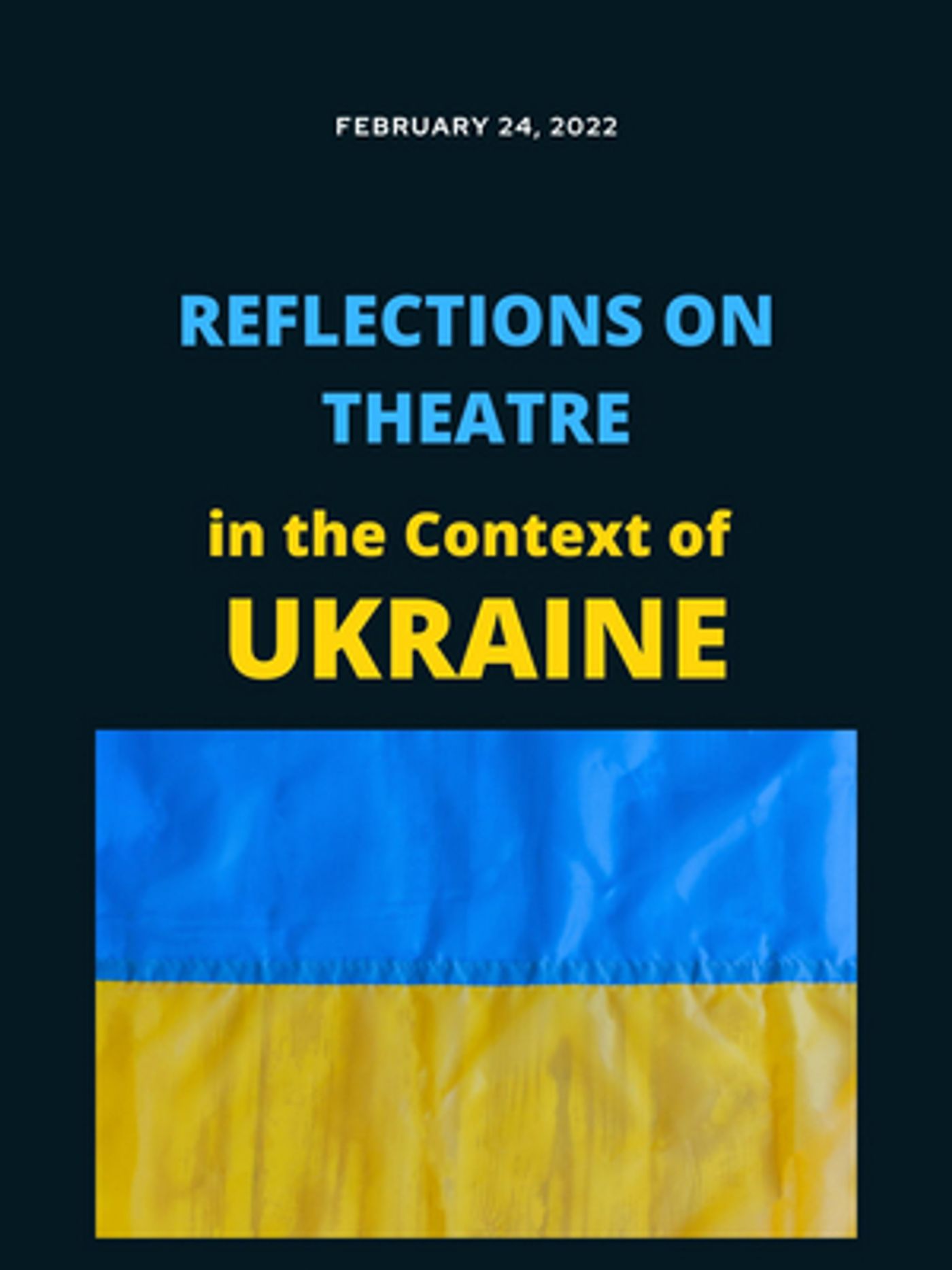Student Blog: Reflections on Theatre in the Context of Ukraine
Can theatre help us learn from history or are we doomed to repeat it?

The often repeated aphorism "history repeats itself" and the related axiom attributed to Winston Churchill, "Those that fail to learn from history are doomed to repeat it" were foremost on my mind as the tragic events in Ukraine unfolded this past week. During a period of relative peace, it is easy for those of us who have yet to finish college to dismiss these axioms, yet it became clear on Thursday, February 27, 2022 that history does indeed repeat itself.
As I became completely immersed in media reports throughout Thursday morning, I couldn't help but think that I had seen this play before. The archetype seemed simple: an egotistical dictator sends troops to invade another country, wreaking havoc upon the inhabitants and the dictator's people at home. In breaking down this pattern, it is clear that the aforementioned plot had been realized hundreds of years prior, going back to Ancient Greece and Rome. For instance, one could connect President Vladimir Putin to the Greek King Agamemnon, who used his brother's heartbreak over Helen to bolster his own ego when he launched his fleet of one-thousand ships upon Troy, as seen in Euripides' Iphigenia in Aulis. Another example lies within Shakespeare's play, Antony and Cleopatra, a theatrical retelling of the events leading up to and during the Battle of Actium where Rome invades Egypt. One could point out the parallels between Octavius's decision to break his agreement with his fellow oligarchs to selfishly attack Egypt for its riches and to spite his rival, Mark Antony, and Putin and his fellow leaders' unfounded choice to invade Ukraine.
As the hours crept by, I continued monitoring reports of the horrific events in Ukraine. Seeing videos on social media of innocent Ukrainians leaving their homes and homeland reminded me of scenes from several musicals. Thoughts quickly came to mind of Tevye and his family abandoning their Ukrainian village of Anatevka, fleeing to Poland and then to the United States at the end of Fiddler on the Roof. Furthermore, I was reminded of the scene in the musical Anastasia when Anya flees Russia as she is pursued by the Bolsheviks singing the heartbreaking "Stay, I Pray You" or of Kim trying to leave Saigon with Chris on a helicopter in Miss Saigon.
Despite the tragic events of the past few days, there have been inspiring moments of extraordinary courage and heroism. Like the French citizens in the musical Les Misérables who erect barricades in the narrow streets of Paris for their revolt, Ukrainian citizens and soldiers have bravely battled in the streets of their neighborhoods and cities. Even the President of Ukraine, Volodymyr Zelensky, a former actor, has taken up arms to protect his own country. Equally moving are the protests in Russia as Russian citizens protest the war and their government, creating parallels between the Russian citizens and the citizens of the American colonies in the first act of Hamilton who protest against their governing body.
With the events of the past few days and the last two years, it becomes painfully clear that life like the theater industry is fragile. There is no doubt that the war in Ukraine, just like the Trojan War, the French Revolution or the Vietnam War, captured in the aforementioned theatrical works, will be written about in years to come. Although many great plays or musicals could emerge from the crisis in Ukraine, it would be wonderful if there wasn't another event that causes works as tragic as those mentioned above to be created. Maybe then we could recognize the patterns and archetypes of events such as these. Maybe then we could learn this time, so maybe we could have a reason to stop saying "history repeats itself."

Videos


